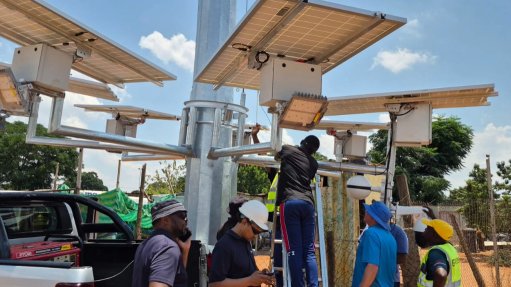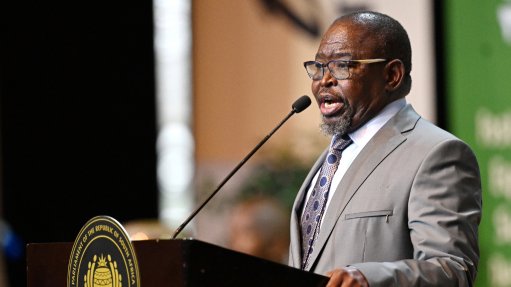Consumers to be subsidised to buy electric vehicles – Ramaphosa
South African consumers should receive some form of subsidy to buy electric vehicles (EVs) in the nearer future, as has been the case in most major markets in the world.
The subsidies are aimed at assisting car buyers in transititioning to these cleaner, but still more expensive, vehicles.
Speaking at the South African Automotive Week 2024, held in Cape Town in October and hosted by naamsa | The Automotive Business Council, President Cyril Ramaphosa fulfilled two of the domestic automotive industry’s long-standing wishes.
“The Department of Trade, Industry and Competition, National Treasury and the Department of Mineral and Petroleum Resources are in conversation about implementing the EV White Paper [released last year].
“This work includes the beneficiation of critical minerals, the production of new-energy vehicles (NEVs) and their associated value chains,” noted Ramaphosa.
“It also includes the production of batteries for battery-electric vehicles (BEVs) and the development of value chains in the green-hydrogen fuel-cell market.”
NEVs refer to hybrids (less green at the tailpipe), plug-in- hybrids (PHEVs – more green) and zero-emission BEVs (most green). The goal of the White Paper is to help South Africa’s automotive industry transition to include the production NEVs of all types.
“We are working to finalise comprehensive NEV policy guidelines that do not exclude technologies such as hybrids and PHEVs,” noted Ramaphosa.
“So, consideration must be given to incentives for manufacturers – as well as tax rebates or subsidies for consumers to accelerate the uptake of EVs.”
Ramaphosa did not provide a timeline for the finalisation of these guidelines. It was also not clear whether the subsidies would extend to electric trucks, buses and other commercial vehicles.
“This is not just about a greener future, but also about ensuring that South Africa remains competitive in the global market,” he emphasised.
“As many of our major trading partners rapidly shift to EVs, there is an imperative that we remain part of this global supply chain. If we don’t, we’ll be left behind.”
The announcement, which was met with enthusiastic applause, comes as some vehicle manufacturers have expressed concern that hybrids and PHEVs have been excluded from the EV White Paper, with companies such as Toyota, Mercedes-Benz and BMW already producing PHEVs and hybrids at their local plants.
No BEVs are currently produced in South Africa.
The country’s vehicle makers have also been advocating for NEV sales incentives for quite some time.
Domestic sales of NEVs – especially the more expensive PHEVs and BEVs – have been slow, frustrating efforts by manufacturers to produce these vehicles for the local and export markets.
For the year-to-date end- August, NEV sales totalled 8 333 units. Within this number, BEV sales were at 871 units, PHEV sales at 346 units, and hybrid sales at 7 116 units.
Europe and the UK are South Africa’s biggest new-vehicle export markets, with 75% of the 400 000 vehicles exported last year finding their way to these regions.
However, Europe is set to ban internal combustion engine (ICE) vehicles by 2035, forcing South African vehicle manufacturers to either adapt, or potentially lose this market.
Two out of every three vehicles produced in South Africa are destined for the export market.
Many vehicle manufacturers are also set to abandon ICE production altogether as the global green economy gathers speed.
China has also emerged as the world’s biggest BEV producer, with South Africa courting the likes of powerhouse BYD, an NEV-only producer, to set up a local plant. For that to happen, however, some degree of local uptake would be required.
Article Enquiry
Email Article
Save Article
Feedback
To advertise email advertising@creamermedia.co.za or click here
Press Office
Announcements
What's On
Subscribe to improve your user experience...
Option 1 (equivalent of R125 a month):
Receive a weekly copy of Creamer Media's Engineering News & Mining Weekly magazine
(print copy for those in South Africa and e-magazine for those outside of South Africa)
Receive daily email newsletters
Access to full search results
Access archive of magazine back copies
Access to Projects in Progress
Access to ONE Research Report of your choice in PDF format
Option 2 (equivalent of R375 a month):
All benefits from Option 1
PLUS
Access to Creamer Media's Research Channel Africa for ALL Research Reports, in PDF format, on various industrial and mining sectors
including Electricity; Water; Energy Transition; Hydrogen; Roads, Rail and Ports; Coal; Gold; Platinum; Battery Metals; etc.
Already a subscriber?
Forgotten your password?
Receive weekly copy of Creamer Media's Engineering News & Mining Weekly magazine (print copy for those in South Africa and e-magazine for those outside of South Africa)
➕
Recieve daily email newsletters
➕
Access to full search results
➕
Access archive of magazine back copies
➕
Access to Projects in Progress
➕
Access to ONE Research Report of your choice in PDF format
RESEARCH CHANNEL AFRICA
R4500 (equivalent of R375 a month)
SUBSCRIBEAll benefits from Option 1
➕
Access to Creamer Media's Research Channel Africa for ALL Research Reports on various industrial and mining sectors, in PDF format, including on:
Electricity
➕
Water
➕
Energy Transition
➕
Hydrogen
➕
Roads, Rail and Ports
➕
Coal
➕
Gold
➕
Platinum
➕
Battery Metals
➕
etc.
Receive all benefits from Option 1 or Option 2 delivered to numerous people at your company
➕
Multiple User names and Passwords for simultaneous log-ins
➕
Intranet integration access to all in your organisation

















